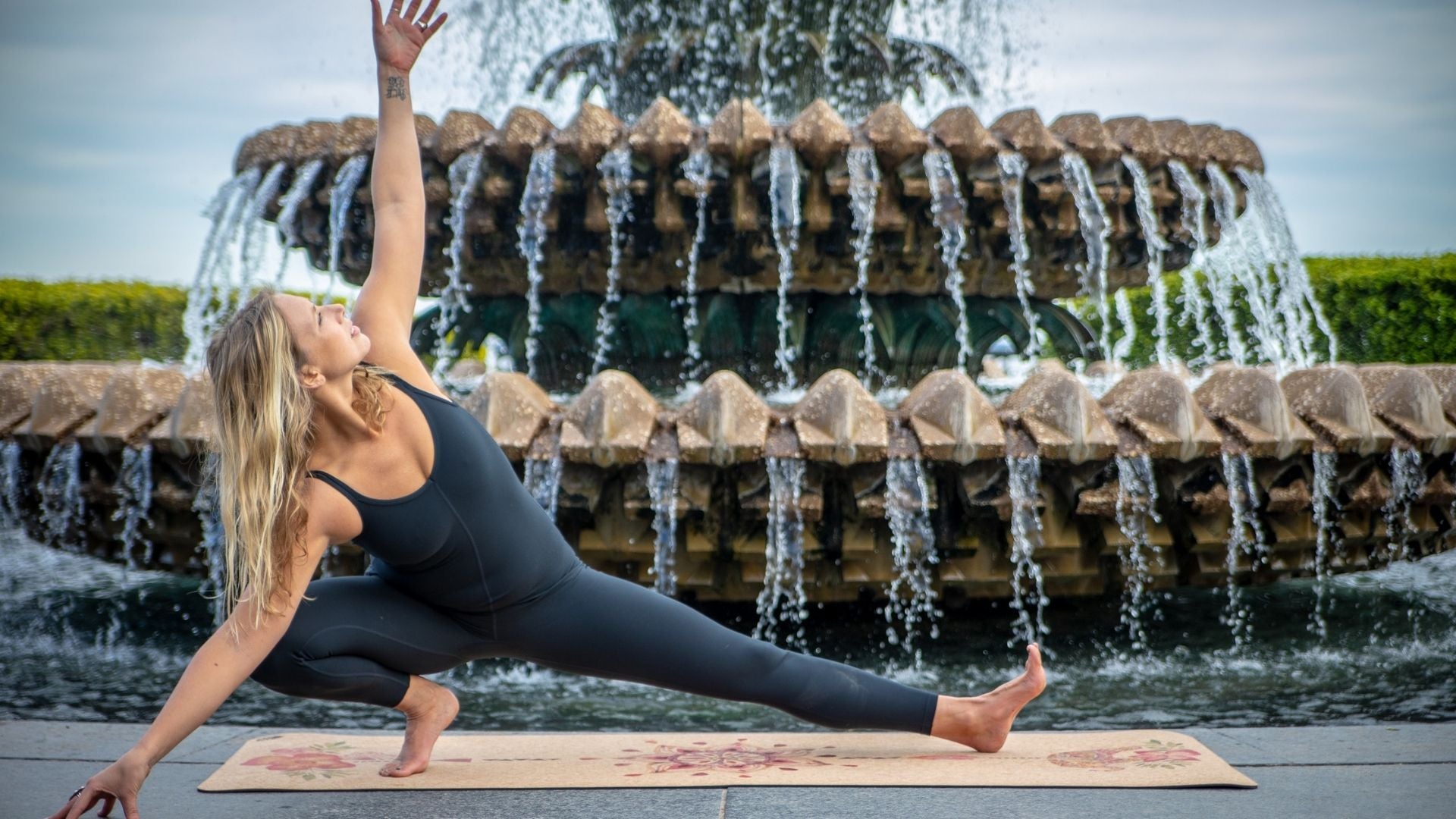Think back to your very first yoga practice; every asana and pranayama was foreign, the physical and mental sensations were completely new. Imagine back to your first attempts to slow the breath and clear the mind. Maybe you felt a sense of homecoming, maybe you felt resistance, however the experience went on that first day, something drew you back. The first few months of learning yoga are so valuable and potent.
Adopting a beginner’s mindset works to integrate that same curious, exploratory spirit into your yoga practice, even if it’s your 400th class. Yoga is a self-guided practice of internal investigation. Think of yourself as a yogi scientist, experimenting with the body and mind. A beginner’s mindset means getting away from autopilot actions and working to discover each pose, as if for the first time.
As one’s yoga practice develops, it is easy to fall into a routine. Consistently attending your favorite class and teacher has its benefits; you develop a community, find ritual within your weekly self-care schedule, and to fully immerse into the lessons of that lineage. By focusing on just one form of yoga you also, limit the opportunity to explore and feel like a beginner again.
“In order to achieve a state of yoga, one must develop both practice and detachment.” Yoga Sutra I.12
This Yoga Sutra is often embodied when learning to let go of expectations around individual poses and actions within the practice. However, it also shares wisdom to inspire a well-varied yogic journey. The shadow side of focusing all your attention on one expression of yoga leads to attachment and bias. When you find a practice that feels organic in your body and mind, embrace that, dive deep, but remember yoga does not start and stop there. Yoga is a vast world of both physical and mental experiences, as well as lifestyle practices. If you become too attached to one style of yoga, you pigeonhole your focus and miss out on a world of knowledge.
One of the best tools to evolve your yoga practice is to continuously test your comfort zone and try new things. Try a new style, different teachers, and even simply switch up the time and location of your practice.
On a physical level, it has been proven that changing up your routine leads to greater results in strength and agility. NY Times (1) explains,
“Performing multiple variations of an exercise changes the muscles recruited and the amount of weight you can lift, leading to greater gains than if you did the same exact movement month after month, says Wilson. While you can include multiple variations of the same exercise in a single workout (like planks and planks with one leg raised), changing those variations every month will also keep your body guessing.”
By attending new classes with varied structures and flows, there is an opportunity to surprise the body and mind, leading to greater muscular development and focused awareness.
A physically varied practice will also bring more balance to your life. For instance, if you are a 4-day-a-week power vinyasa yogi, try switching 1 of those days to a Restorative, Yin, or meditation class. On the opposite spectrum, if you are naturally drawn to the slower moving classes, shake things up and try out a more rigorous practice. In order to fully embody each moment of any given class, it is crucial to be intimately connected with the sensation of exertion, challenge, relaxation, and ease. By making time for all of these experiences in your yoga schedule, you create space for a wide spectrum of healing to take place.
There is such power when we go outside of our comfort zones. Trying new things requires confidence; be brave enough to explore. Have the courage to go to the class that maybe intimidates you. Embrace the vulnerability, everyone is a beginner at some point.
AshleyAnne Brown
AshleyAnne is a 500hr RYT, she received her 200 hr YTT from the Kripalu Yoga Center in 2012, and continued her studies finishing her 300 hr YTT from the Passion Yoga School in 2017. Her classes follow the Akhanda Yoga lineage, a traditional Indian style asana practice focusing on the energetic body. She holds space for her students to explore their primal human nature. Her classes advocate yogis to dive beyond the physical experience and connect internally with pranayama and meditation. She creates a sacred space for the community of students too feel silly, vulnerable, playful and whole. AshleyAnne specializes in stand up paddle board yoga, and prenatal yoga (85 hr YTT) Both classes offer the opportunity for her to fulfill her dharma (purpose) to empower and connect women to the nature and beauty surrounding them and within them.
Sources
https://time.com/4237126/13-ways-to-get-the-most-out-of-your-workout-according-to-research/


